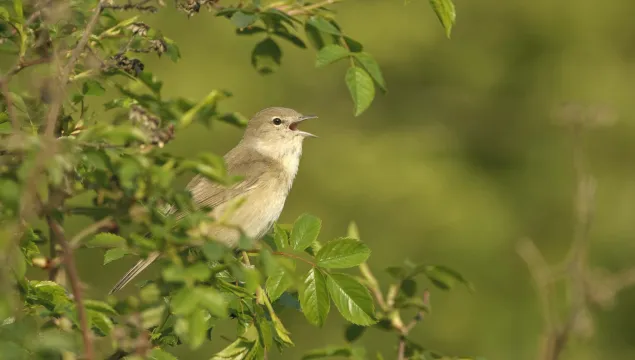
Garden warbler
A plain-looking warbler, the garden warbler is a summer visitor to the UK. It is a shy bird and is most likely to be heard, rather than seen, in woodland and scrub habitats.

A plain-looking warbler, the garden warbler is a summer visitor to the UK. It is a shy bird and is most likely to be heard, rather than seen, in woodland and scrub habitats.
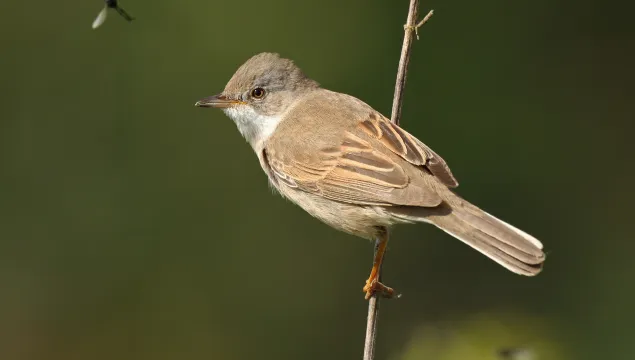
The male whitethroat does, indeed, have a white throat! Arriving from Sub-Saharan Africa in April, it can be spotted on grassland and scrub, and along hedgerows. It is bigger than the lesser whitethroat.
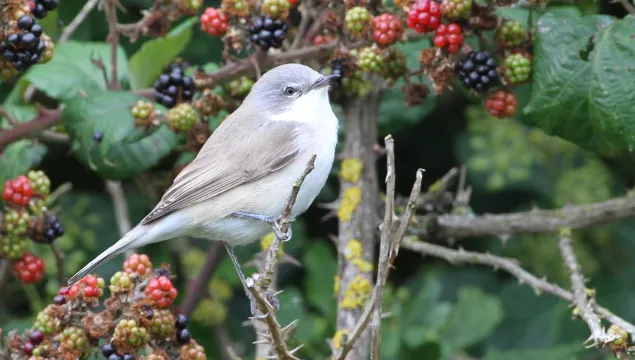
The lesser whitethroat is smaller than its cousin, the whitethroat, and sports dark cheek feathers that give it a 'mask'. Most likely to be heard around woodland and scrub, rather than seen.
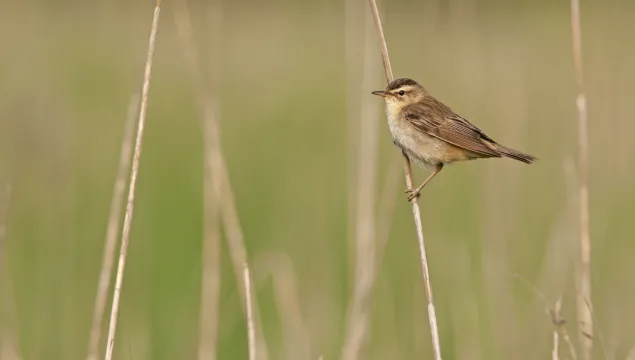
In summer, the sedge warbler can be spotted singing from a reed or willow perch in wetlands across the UK. Males never sing the same song twice, adding new phrases to impress the females.
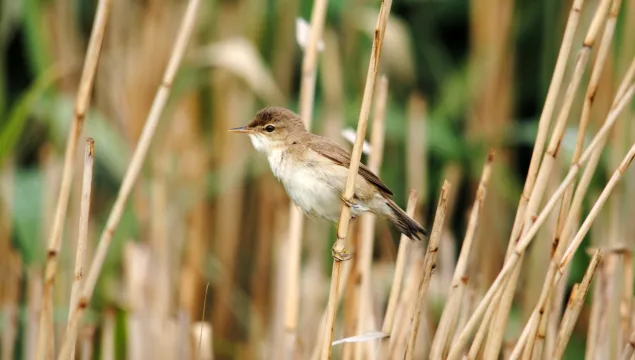
Listen out for the 'chattering' song of the reed warbler, while wandering the UK's lowland wetlands in summer. A small, brown bird, they are quite hard to see.
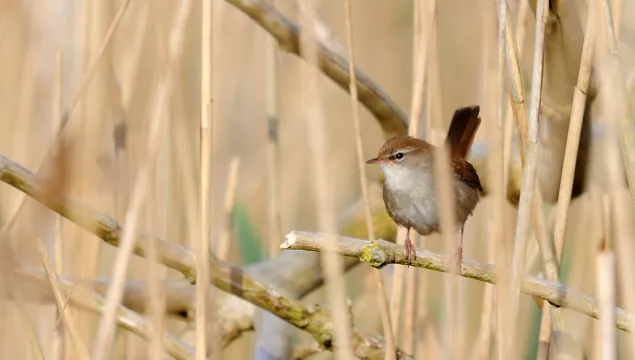
A dark, stocky warbler, the Cetti's warbler is most likely to be heard, rather than seen - listen out for its bubbling song among willow, marsh and nettles.
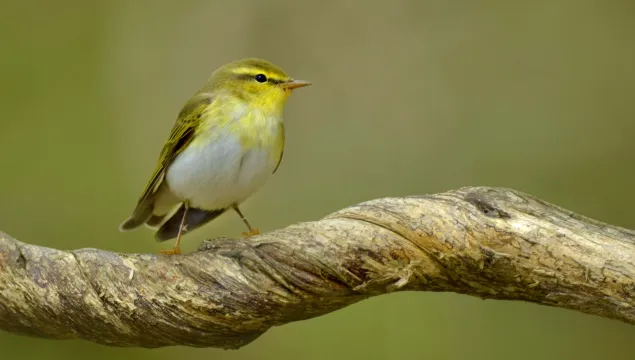
Look for the wood warbler singing from the canopy of oak woodlands in the north and west of the UK. Green above, it has a distinctive, bright yellow chest and eyestripe.
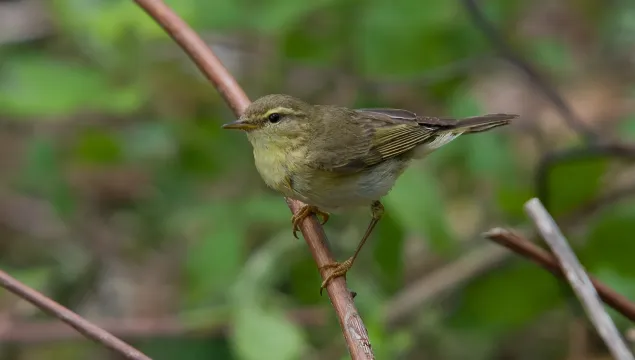
A summer visitor, the willow warbler can be seen in woodland, parks and gardens across the UK. It arrives here in April and leaves for southern Africa in September.
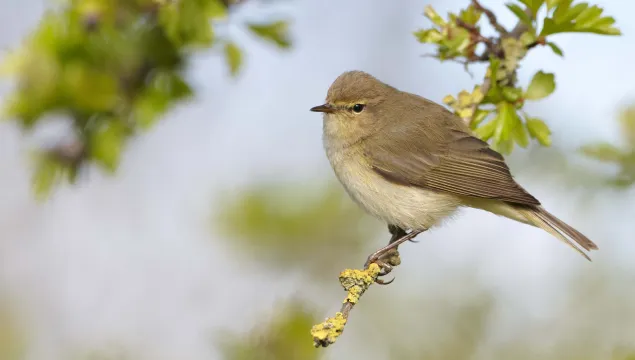
In early spring, listen out for the 'chiff chaff chiff chaff' song of the appropriately named chiffchaff. It can be heard in woodland, scrub, parks and gardens across the UK.
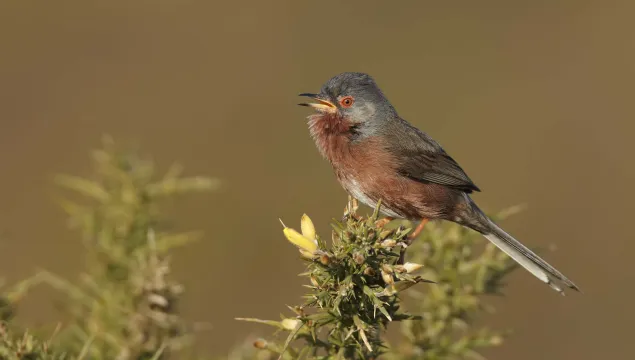
The small, brown Dartford warbler is most easily spotted when warbling its scratchy song from the top of a gorse stem. It lives on lowland heathland in the south of England, where it nests on the ground.
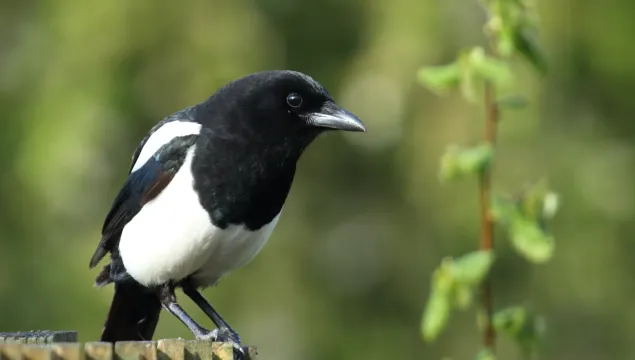
"One for sorrow, two for joy…" is a popular rhyme associated with the magpie - a bird of much myth and legend. An unmistakeable member of the crow family, it can be seen almost anywhere.
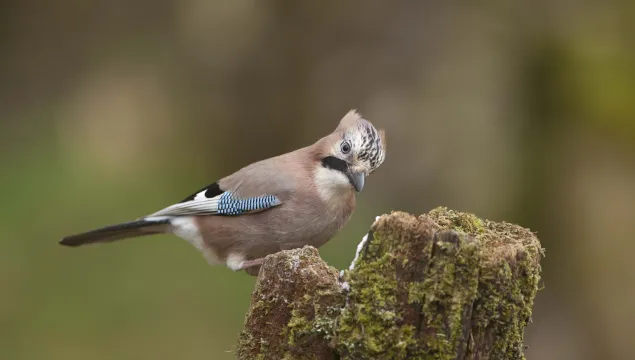
The jay is a colourful member of the crow family, with brilliant blue wing patches. It is famous for searching out acorns in autumnal woodlands and parks, often storing them for the winter ahead.